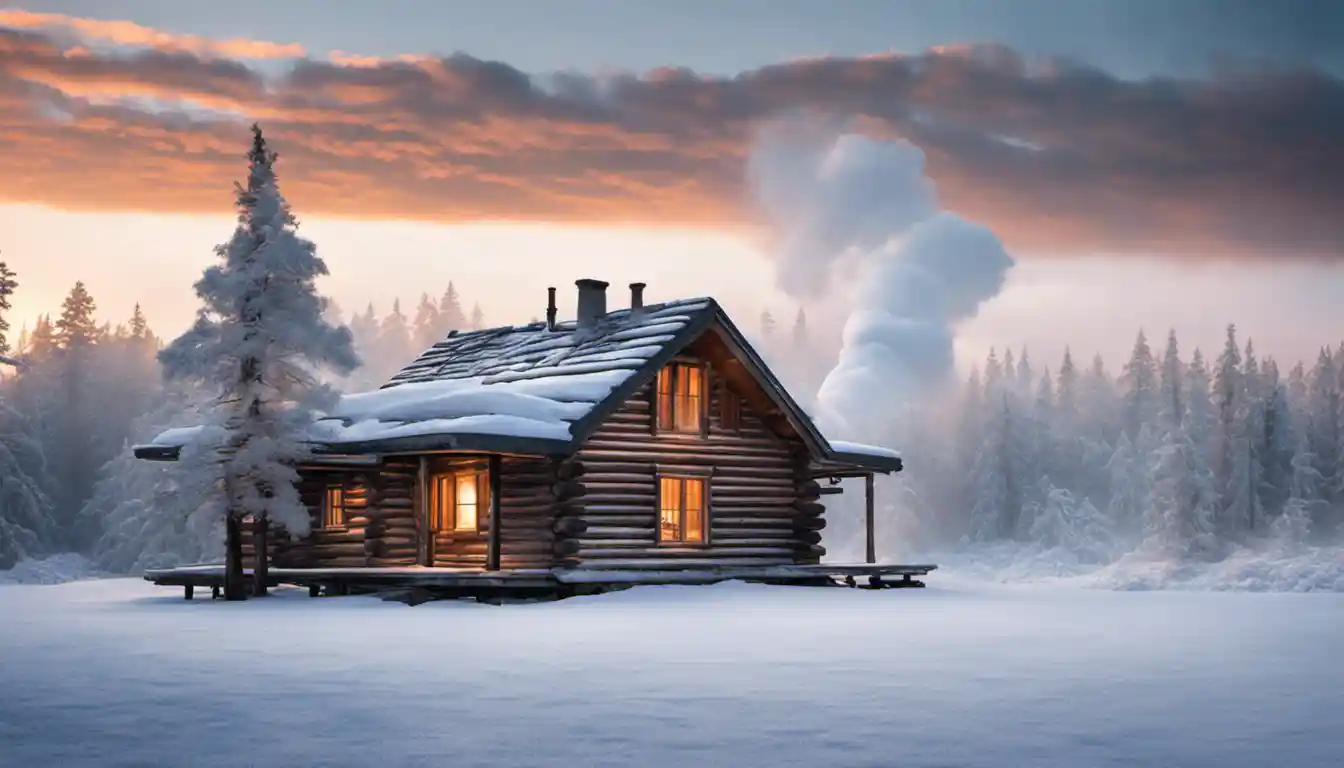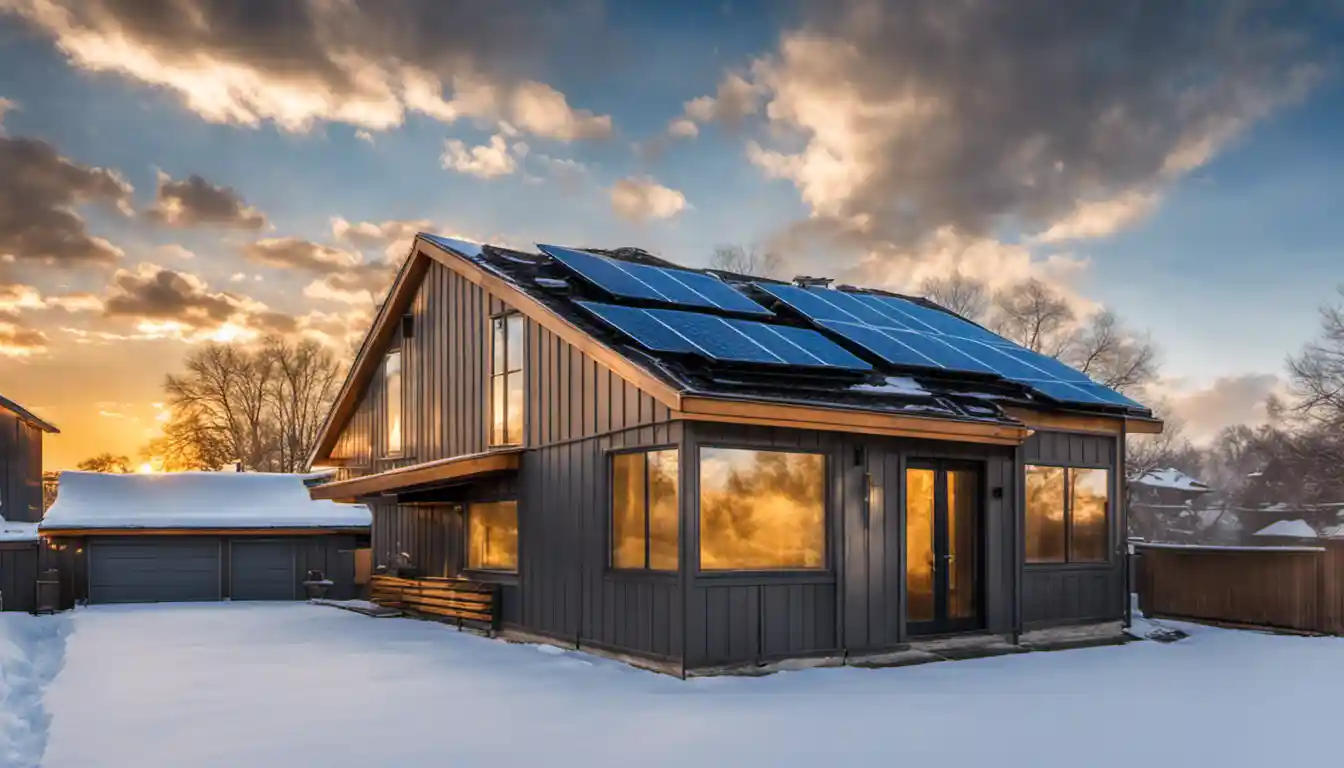Introduction to Solar Heating Systems
Yes, solar heating can work in winter, as long as there is enough sunlight for the solar panels to absorb and convert into energy. However, the efficiency might be reduced due to less sunlight hours, snowy conditions, or cloudy weather.
How Solar Heating Systems Work?
Solar heating systems work by converting the energy from sunlight into heat that can be used to warm your home or water. They do this through three main steps: collection, transfer, and storage.
Solar Collection
Solar collection is done through panels typically mounted on the roof. These panels contain either liquid or air, which is heated by the sun’s energy. The warmer weather allows the fluid or air to heat up quicker, turning more of the solar energy into usable heat. But even in the winter, sunshine can warm these panels sufficiently.
Heat Transfer
Once the solar energy has been collected and converted into heat, it needs to be transferred to the part of your home that needs heating. This is done through a heat exchanger, which moves the heated fluid or air into your house’s heating system. It can be pumped through radiators, underfloor heating, warm air convectors or hot water cylinders.
Heat Storage
After the heat has been transferred, any leftover heat can be stored for later use. The storage system acts like a battery, keeping hold of this heat until it’s needed. This is where your system can get a boost in the winter- a well-insulated tank can keep this heat for longer, helping to provide warmth even in colder months.
Does Solar Heating Work in Winter?

The keyword phrase “does solar heating work in winter” needs to account for several factors. After all, it’s not as simple as a yes or no answer. Here are some factors to consider:
Solar Heating Efficiency During Winter
Solar heating systems are reliant on sunlight – not just daylight. While they still work on overcast or snowy days, they’re less efficient. More sunlight equals more heat, and more heat equals a better performing heating system.
Factors Affecting Solar Heating Performance in Winter
Of course, factors such as geographical location and the tilt and orientation of your panels play a part in how efficient your solar heating is in winter. For example, if you live in an area with a milder winter and get lots of sunny days, your panels will perform better than in a location with long, harsh winters and fewer sunny days.
How Do Solar Water Heaters Work in Winter?
Here you can learn more about what is solar heating and how solar water heaters function in winter.
Insulation and Solar Water Heaters
A well-insulated water tank is critical for solar water heaters to successfully work in winter. The insulation will keep the heat inside, preventing it from escaping and ensuring hot water is always available when needed.
Radiator Fluid Technology in Solar Water Heaters
Most solar water heaters use a heat transfer fluid, which is able to withstand low temperatures without freezing, allowing the solar water heater to function even in colder weather.
Why is Solar Heating Less Effective in Winter?

Solar heating is less effective in winter due to two primary reasons:
Lower Solar Irradiance
In winter, the angle of the sunlight is not as direct as in summer, resulting in less solar energy being available.
Colder Ambient Temperatures
The colder it is outside, the more energy it takes to heat your home. So, while your solar heating system might still be generating heat, it won’t be as noticeable due to the colder outdoor temperatures.
Can Solar Thermal Panels Freeze in Winter?
Solar thermal panels can freeze in winter, which can damage the system. To prevent this, anti-freeze technologies are in place.
Anti-Freeze Technologies in Solar Thermal Panels
Anti-freeze technology uses a special fluid instead of water in the panel’s heat exchanger to prevent freezing, making these systems highly effective, even in sub-zero winter conditions.
Is it Still Worth Installing Solar Heating in Winter?

Absolutely yes! Think about it: even a small reduction in your reliance on the power grid brings big savings. While the system might not operate at full capacity, it will still contribute significantly to your hot water and heating needs.
Benefits of Solar Heating in Winter
Even with reduced hours of sunlight, solar panels will still generate power, meaning your furnace or heater will not need to work as hard. Plus, most places in the U.S. have enough winter sun to make this a practical option.
Considerations for Installing Solar Heating in Winter
Installation might be more challenging during the winter months due to weather conditions. It’s good to plan and coordinate with a knowledgeable installer for the best result.
Common Misconceptions About Solar Heating in Winter
A common misconception is that solar heaters don’t work in winter. But the truth is, they do work, it just depends on the amount of sunlight, the type of solar heating system you have, and how well your system is maintained.
Ways to Improve Solar Heating Efficiency in Winter
You can improve your solar heating system’s efficiency in winter by installing additional insulation, using a larger storage tank, using efficient heat exchangers, and regularly maintaining your system.
Some homeowners also add a secondary heat source, such as a gas furnace or heat pump, which kicks in only when needed. This ensures the comfort is never compromised.
Conclusion: Sun’s Power in All Seasons.
So, the answer to “does solar heating work in winter” is a definite yes. Even in the coldest months, the power of the sun can help reduce your reliance on grid-supplied power and save on energy costs. Winter sun, while less intense, is still a viable source of renewable heating. Remember, every little bit counts. The main things are systemic efficiency, good installation, and ongoing maintenance. Solar heating isn’t just for the summer months, it can provide year-round benefits.
Consider solar heating systems as an investment in your home, your comfort, the environment, and the future. It’s a choice that can provide warmth for winters to come.



